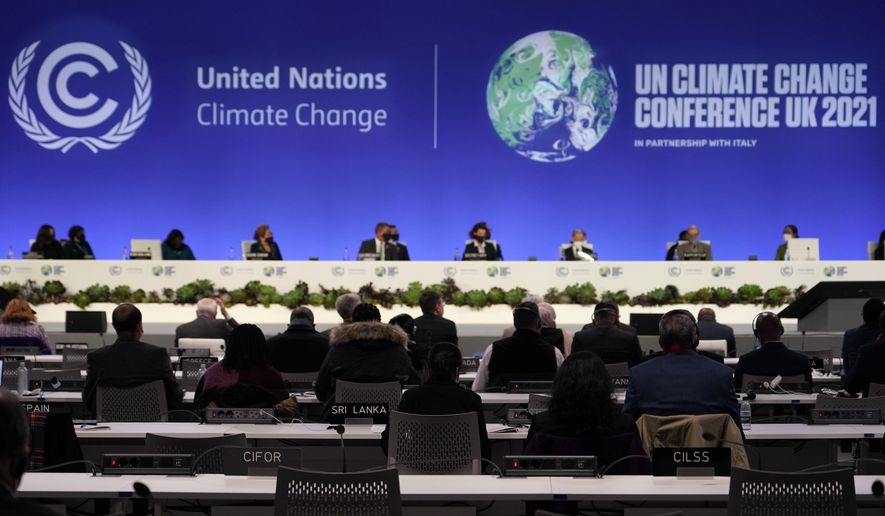OPINION:
It is a sign of maturity when, as British wordsmith Rudyard Kipling once noted, “you can keep your head when all about you are losing theirs.” A level-headed approach to climate change issues is wanting, as United Nations activists offer up costly initiatives meant to mitigate global temperatures while failing to account for the world’s swelling, affordable energy needs. Only a more significant role for nuclear power can resolve climate fears without triggering energy poverty.
The U.N. Conference of the Parties (COP) 26 has unfolded in Glasgow, Scotland, with a jarring warning as a prelude. Greenhouse gas emissions, reads its Emissions Gap Report 2021, are forecast to blow past a ceiling of 1.5 degrees Celsius above pre-industrial levels set by the 2015 Paris Climate Accord and reach 2.7 degrees Celsius by 2100.
The central challenge is whether the world’s advanced nations powered by fossil fuels can be converted to run on net-zero emissions sources without running their economies into the ground. Donald Trump reckoned the cost would unfairly punish U.S. industry. Since domestic emissions were already falling, he rejected the U.N. plan.
In contrast, President Biden is all in on climate change. His plan to put a $555 billion down payment to the environmentalists’ “Green New Deal” may be welcome news in Glasgow; stateside, not so much. The president has managed to show Americans what life looks like when the government chokes domestic fossil fuels. Pipeline and drilling-field bans have already resulted in a gasoline price spike of nearly 60 percent, and a surge in natural gas costs is expected to top 50 percent. The Biden solution: beg the OPEC oil cartel to provide the fuel that he will not.
China, the world’s top carbon emissions producer, cut coal production to suit environmentalist demands this year. Subsequent rolling blackouts forced the Communist government to drop the “green” designs and push the coal pedal to the metal. Embarrassed by China’s about-face, President Xi Jinping has chosen not to show at COP26. Likewise for Vladimir Putin, who would rather sell Russia’s fossil-fuel bounty to energy-impoverished nations than restrict it.
The U.N.’s renewable energy ambitions are likely to come up short without a boost from nuclear power. In 2020, all solar, wind, and other renewables generated 12 percent of U.S. energy consumption. Fossil fuels accounted for 69 percent.
To erase oil, natural gas and coal without descent into U.S. energy poverty would require boosting emissions-free nuclear power from the current 12 percent to a proportion closer to the 70 percent found in France. Even better would be investments in nuclear fusion — next-generation technology advancing toward the production of clean, nearly limitless power within the next decade.
It is fantasy to bet the energy future on the likes of U.S. climate envoy John Kerry, who called the U.N. meet-up the “last best hope for the world to get its act together.” Chicken Little couldn’t have squawked it better.




Please read our comment policy before commenting.